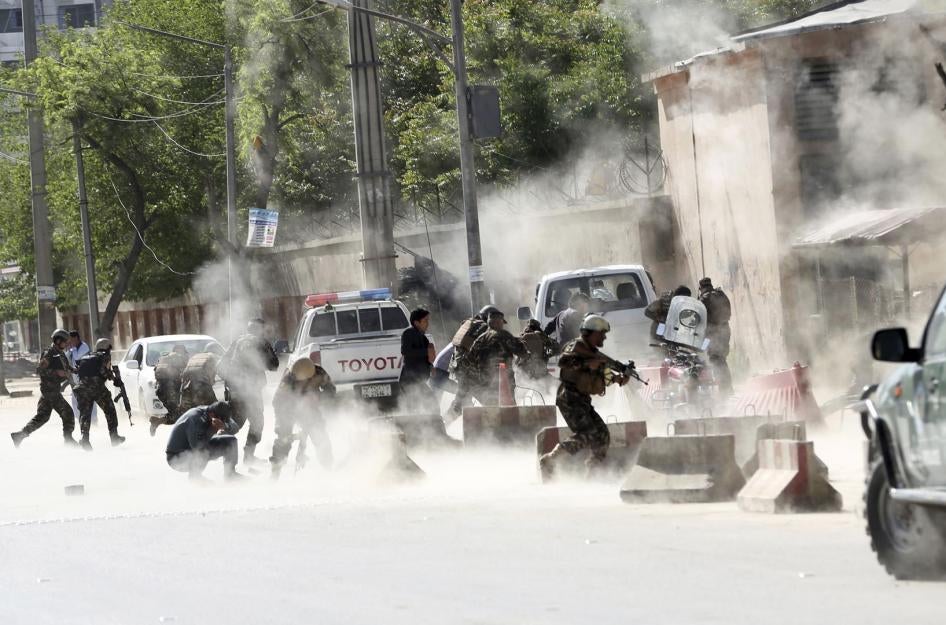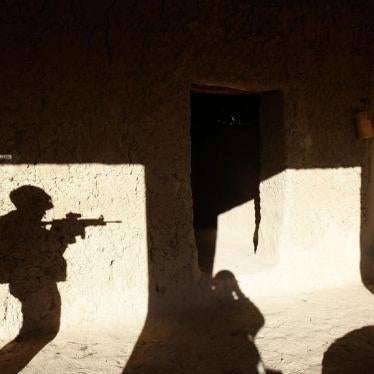(New York) – Civilians increasingly bore the brunt of Afghanistan’s widening armed conflict in 2018, Human Rights Watch said today in its World Report 2019. More than 10,000 civilians were killed or injured during the year, a third of them children.
Insurgents carried out deadly attacks in urban areas, assassinated officials and other civilians, and targeted voters. United States and Afghan government forces caused civilian casualties during intensified airstrikes and night raids. Insecurity led to massive displacement and a drop in school attendance for the first time since 2002 – 60 percent of Afghan girls were not in school.
“Longstanding governance failures, a contemptible disregard for civilians by insurgents, and a short-sighted security strategy by the US and other donor countries, has had catastrophic results in Afghanistan,” said Patricia Gossman, associate Asia director at Human Rights Watch. “Momentum for peace talks in 2019 may depend on whether the participants make protecting civilians and human rights a priority.”
In the 674-page World Report 2019, its 29th edition, Human Rights Watch reviewed human rights practices in more than 100 countries. In his introductory essay, Executive Director Kenneth Roth says that the populists spreading hatred and intolerance in many countries are spawning a resistance. New alliances of rights-respecting governments, often prompted and joined by civic groups and the public, are raising the cost of autocratic excess. Their successes illustrate the possibility of defending human rights – indeed, the responsibility to do so – even in darker times.
The Islamic State of Khorasan Province (ISKP), the Afghan branch of the Islamic State (also known as ISIS), sharply escalated its attacks in urban areas through 2018, including multiple bombings that targeted Afghanistan’s minority Shia population. The Taliban carried out indiscriminate attacks that killed and injured hundreds of civilians.
Air operations by US forces and the Afghan Air Force killed and injured over 600 civilians, 60 percent of them women and children. Neither military carried out adequate investigations into airstrikes that were possible war crimes. The leading causes of casualties among children were improvised explosive devices (IEDs) used by insurgents and explosive remnants of war left by all sides.
Widespread violence marked preparations for the October parliamentary elections, with insurgents carrying out numerous attacks on candidates and facilities used for voter registration, including schools. Targeted attacks on voters, roadways, and poll facilities on election days killed or injured over 400 civilians. Fraud and vote-buying cast doubt on prospects for credible presidential elections in 2019.
At least 14 journalists were killed in 2018, 11 of them in ISKP suicide attacks aimed at first-responders. The Taliban made death threats against journalists. Afghan authorities and security forces assaulted members of the media. Unidentified gunmen assassinated two journalists, in Khost and Kandahar.
Afghanistan ratified the United Nations Optional Protocol to the Convention against Torture. However, it failed to hold police and National Directorate of Security (NDS) personnel accountable for systematic torture, extrajudicial executions, and enforced disappearances. US and Australian forces faced domestic inquiries into alleged crimes in Afghanistan, including summary executions and abuses against civilians.
Women and girls who were victims of domestic violence rarely found justice in the courts, as prosecutors and police pressured them to accept mediation, rather than prosecution of their assailants.
“Trying to bring stability to Afghanistan while turning a blind eye to corruption and systematic abuses has been a signal failure by the Afghan government, donors, and international forces,” Gossman said. “Afghanistan is on the precipice of even greater tragedy unless all stakeholders commit to respecting human rights and reducing harm to civilians.”









